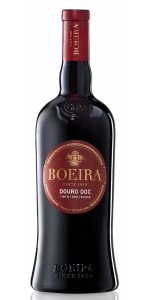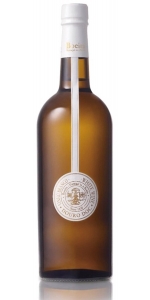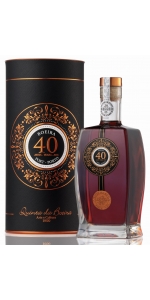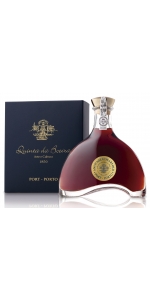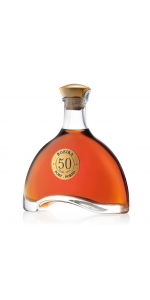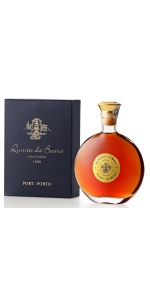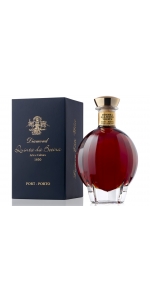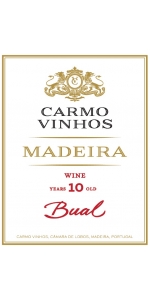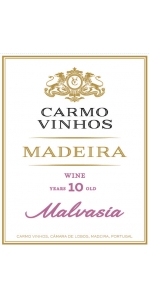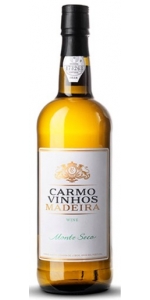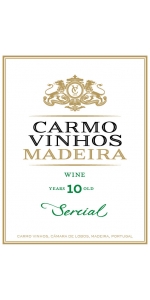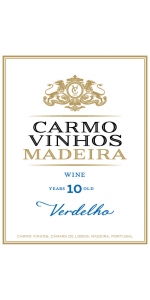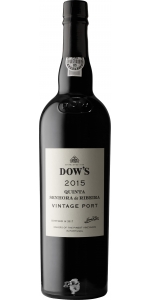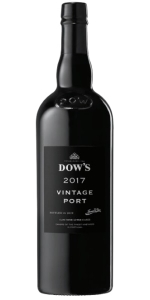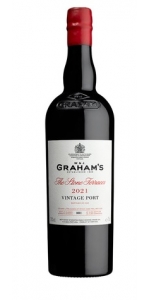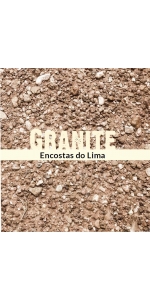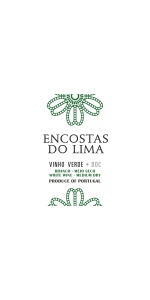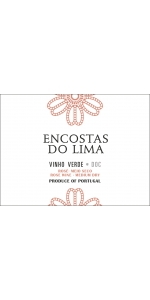Wine from Portugal
Boeira Douro Red is made from 35% Touriga Nacional, 35% Tinta Roriz and 30% Touriga Franca.
Deep ruby color with purple hints. Aromas of red and black fruits, toasty notes and dark chocolate. Smooth on the palate with good structure and excellent mouthfeel. Fresh, with well integrated tannins bringing elegance and a gastronomic profile to the wine. Very well balanced. Boeira Douro DOC Red from the Douro Valley is the result of a careful blend of different varieties from the Douro. After fermentation the wine was left in contact with its lees until bottling in order to develop complexity and richness.
Pair with pork roast stuffed with prunes and apricots, grilled meats, marinated leg of lamb, chicken curry, pasta with beef or pork ragout, vegetable timbale with roasted tomatoes and grilled almonds. A very “friendly” food wine.
Boeira Douro White 40% Malvasia Fina, 30% Rabigato, 20% Gouveio and 10% Fernão Pires.
Good volume in mouth revealing its fruity character, now enhanced with a citrus component. Slight mineral touch that gives it personality. It is a complex and deep wine with a persistent finish.
Good accompaniment to fish dishes, salads, and can also be drunk as appetizers. Should be consumed at a temperature between 8º and 10ºC.
It has a brownish red color.
Intense and complex, aged for many years in French oak. It has an elegant cigar leaf aroma. Dense and round in the mouth with dried fruit, honey and notes of crystallized fruit. A velvety and persistent finish.
RS: 114g/Liter
TA: 3.7g/Liter
Pairings: Digestive: Dried fruits, caramel sweets and conventual sweets (portuguese pastries).
It has a brownish red color. Intense and complex, aged for many years in French oak. It has an elegant cigar leaf aroma. Dense and round in the mouth with dried fruit, honey and notes of crystallized fruit. A velvety and persistent finish.
RS: 114g/Liter
TA: 3.7g/Liter
No irrigation, Harvest by hand, Port wine traditional method: (Fermentation, with skin maceration, takes place a a controlled temperature and is interrupted by the addition of grape spirits).
Aged in 550 Liters French Oak barrels with an average age of 40 years.
Slightly filtered before bottling.
Pairings: Digestive: Dried fruits, caramel sweets and conventual sweets (portugueuse pastries)
Boeira Tawny 50 Year Port is produced from Touriga Nacional, Touriga Franca, Tinta Roriz, Tinta Barroca and Tinto Cao.
Brownish color with strong coppery reflections. Toasted almonds and dried fruit stand out on the nose, with a delicate sweetness. Intense flavors on the plate, but a refinement and elegance that reflects its level of ageing. A very long evolving finish.
Boeira 50 Years Old Port is excellent as a digestive.
pH : 3.57TA : 9.48 g/L
RS : 152g/L
Then, it is aged for 50 years in 550 liter French oak barrels.
Traditional Porto winemaking with skin contact maceration and short alcoholic fermentation in stainless steel tanks followed by fortification.
Dark amber color. Notes of dried fruit and honey balanced with rich aromas of dried fruit and torrefaction. In the mouth, subtle flavors of crystallized fruit (cherry, dates and raisins), nuts and coffee. Elegant finish.
RS: 133g/Liter
TA: 3.3g/Liter
Pairings: Digestive: Cheeses and conventual sweets (portuguese pastries).
Boeira White Diamond Port is made from Malvasia Fin, Viosinho, Gouveio, and Côdega de Larinho.
Clear amber color, on the nose aromas of citrus, tangerine peel, peaches and honey. In the mouth it is full but elegant, well integrated and persistent finish
Boeira White Diamond Port is the perfect companion for a number of foods including appetizers, lean fish, salads, pasta or desert like apple pie or crème brulée.
Review:
The NV White Diamond Port is the estate's 10-year Tawny based on Málvasia Fina, Viosinho, Gouveio, and Côdega de Larinho. Caramelized orange, toffee, fig, and spicy white chocolate notes all shine on the nose, and this beauty hits the palate with medium to full-bodied richness and a round layered, incredibly seamless mouthfeel. It's all about its seamless, decadent, sweetly fruited, yet balanced style.
-Jeb Dunnuck 94 Points
This gift pack consists of 3 different 100ML bottles :
- one bottle of White Port (100ml)
- one bottle of Tawny Port (100ml)
- one bottle of Ruby Port (100ml)
Perfect impulse buy for the holidays or for a birthday gift !
Carmo Vinhos Madeira Bual 10 Yr has depth, medium body, acidity and sweetness. Lively and full with delicious flavors of caramel and toffee and a lasting aftertaste. Delicious as a dessert wine. This wine demonstrates the perfection of the blender's art and is to be savored.
Carmo Vinhos Madeira Malmsey 10 Yr is richest style of Madeira. With a deep amber color, this intense wine has a complex flavor of walnuts, dried fruits, coffee and caramel. Full body hiding the acidity and a very long finish. An excellent accompaniment to coffee.
A light pale, dry wine, which is best served well chilled or on the rocks or even as a long drink with tonic. A fragrant delicate wine that is crisply dry and fruity. It makes a perfect aperitif to accompany canapés.
Carmo Vinhos Madeira Sercial 10 Yr is the driest style of Madeira, a light bodied wine with a distinctive nutty nose. An excellent apertif. The concentration at this age has produced a very attractive and interesting wine, with a long finish.
Carmo Vinhos Madeira Verdejo 10 Yr an amber medium dry wine with medium body and acidity. Rich aroma and flavor of dried fruits, nuts and caramel, showing a vibrant character, lengthy and well balanced. An excellent aperitif or as an accompaniment to pates.
Exceptionally aromatic with aromas of violets, hints of blackberry, blackcurrant and black plum on the nose. There is some spice that is balanced with fresh acidity and minerality. A long finish with ripe but firm tannins.
Dow's Senhora da Ribeira can be enjoyed anytime and pairs wonderfully with chocolate desserts and soft cheeses like creamy Stilton or Roquefort.
Review:
Rich and fruity, this wine is packed with intense black-currant flavors. It is perfumed, ripe with a good tannic background. The density of the wine and the firm structure point to a long aging process. Drink this beautifully structured wine from 2026.
-Wine Enthusiast 93 Points
Winemaking:
Senhora da Ribeira has one of the most advanced specialist wineries in the Douro, combining the best of traditional winemaking practice, evolved over centuries, and the latest state-of-the-art automated systems. Three granite ‘lagares’ for foot treading are complemented by three ‘robotic’ lagares, designed by the Symington family and installed in the quinta’s winery in 2001.
It has long been recognised that traditional treading produced some of the finest Ports, but there are some drawbacks involved in traditional treading; temperature control is difficult, there is a limit to how long people are willing to tread and they need to sleep. The winemaker’s options are therefore limited, he or she cannot order treading at different times through the night, or pull people off the picking team at will. Furthermore, emptying the traditional lagar takes a long time; in the meantime the fermentation process is accelerating away. A further handicap arose over recent years, when an increasing scarcity of labour obliged producers to look for less labour-intensive vinification solutions. The Symingtons opted to devise a mechanical means of replicating the proven method of foot treading. The result was the Symington ‘robotic lagar’, an automated treading machine which exactly replicates the gentle action of the human foot and which has revolutionised winemaking in the Douro Valley. This equipment is very expensive but the results have been so good that an increasing proportion of Dow’s finest wines are now made in these automated lagares. Approximately half of the wines for Dow’s much praised 2003 Vintage were vinified in them.
The Senhora da Ribeira’s Quinta Vintage Ports have amassed a highly impressive number of awards: three Gold Medals at the International Wine Challenge, (2008, 2006 and 2001, for the 2005, 2002 and 1999 Vintages, respectively) as well as seven Silver Medals and two Gold Medals at the International Wine & Spirit Competition (London, 2008 for the 2005 Vintage and 2002 for the 1998 Vintage). In September 2006, Jancis Robinson MW wrote, “One very exciting new bottling is Dow’s Quinta da Senhora da Ribeira 2004...this single quinta bottling demonstrates superb quality with wonderful vibrancy. Great wine in any context - not that unlike some California reds! This is definitely a wine to look out for when it is released.”
Wine Profile
The very hot climate through the summer at this vineyard results in highly complex and concentrated wines but very low yields. Colours of the musts in the fermentation tanks are always purple-black due to the very high skin to juice ratio. The old vines add further to the intensity of the wine as they make up a very large percentage of the vineyard. The resulting wine can be described as being the essence of Vintage Port, with powerful wild red-fruit flavours, leading into rich black chocolate notes, the whole balanced by complex, attractive and peppery tannins.
One of the Douro’s most beautiful vineyards, Senhora da Ribeira is located 24km (15 miles) upriver from Quinta do Bomfim in the remote Douro Superior. The vineyard commands a magnificent north bank position, overlooking a broad sweep of the Douro, directly opposite another famous Symington owned vineyard: Quinta do Vesuvio. Senhora de Ribeira was built close to an ancient river crossing, guarded by two 12th century castles on either side of the river built by the Moors during their centuries long occupation of Iberia. A small chapel dedicated to the ‘Lady of the River’ (literally: Senhora da Ribeira) has stood here for centuries and gave the quinta its name. Travellers would pause here to ask for a safe river passage and onward journey.
Senhora da Ribeira’s wines are some of the finest in the Douro and they complement those from Bomfim in the composition of Dow’s classic Vintage Ports. The quinta’s high proportion of old vines (45% are over 25 years old) is of critical importance. The old vines are very low-yielding, producing on average less than 1Kg of grapes each, giving intense and concentrated musts which are ideal for classic Vintage Port. The remainder of the vineyard was replanted as follows: 21% in 2001 and 34% from 2004, the latter involving mainly Touriga Nacional vines. This grape variety - very important for Vintage Port - now represents almost exactly a third of the total planted at the quinta. The entire vineyard has the maximum ‘A’ rating.
As with Bomfim, the consistency of the climate plays a key role, although the rainfall is only half of that experienced at Bomfim: 448mm is the 10 year average. This more extreme climate, hot dry summers and cold, equally dry winters results in wines with unique depth of colour and complexity.
As with Quinta do Bomfim, the best Ports from Senhora de Ribeira are used to make Dow’s Vintage Ports in the great and rare ‘Declared’ years. In the good year’s when Dow’s does not ‘declare’ a Vintage, the best wines of ‘The Lady of the River’ are bottled as Dow’s Quinta de Senhora da Ribeira Vintage Port. They will tend to mature a little earlier than the very rare ‘Declared’ years, but can be every bit as good as some other Vintage Ports.
The 2017 was a very different year to 2016 in terms of the viticultural conditions and it was interesting to watch the progression of the wine and scrutinize its quality as it developed over its first two winters. Whereas 2016 had a very mild winter and exceptionally hot summer, this was compensated by abundant winter and spring rainfall. Conversely, 2017 was warm and drythroughout, although summer temperatures were closer to average, whichproved to be a very significant factor allowing for complete, balancedripening.
It is rare to see such tremendous depth and intensity in color as this winedisplays. The freshness of the floral aromas is very attractive with adominance of rockrose, a flower that grows wild around the hills of Senhorada Ribeira. On the palate, it is exceptionally full-bodied, rich andpowerful with black fruit coming to the fore. Gorgeous, ripe fruit isbalanced by the fine tannin structure. On the finish, it is typically Dow,austere and somewhat drier than many other ports. The intense fruit flavors linger long on the palate.
Dow’s Vintage Ports are only produced in years of exceptional quality and represent only a very small part of the total company’s production in that year. On average only two or three times every ten years are the weather conditions sufficiently good to allow for the making of Dow’s Vintage Port.
Throughout the 19th and 20th centuries, Dow’s Vintage Ports have been landmark wines in virtually every great year, consistently setting the standards amongst all Port houses. Vintage Ports such as the remarkable Dow 1896, the 1927, 1945, 1955, 1963, 1966, 1970, 1980 and the Dow 1994 are all legends in the history of this great wine. These Ports are still magnificent today, even when 50 or over 100 years old. Few wines can claim this quality and this pedigree.
Dow's Vintage Ports are drawn from the companies' finest vineyards; Quinta do Bomfim and Quinta de Senhora da Ribeira. Each property contributes to the Dow’s unique and distinctive style. When young, Dow’s Vintage Ports are purple-black, austere, complex and intensely concentrated, full-bodied and balanced with very fine peppery tannins.
Over the centuries, the Dow winemakers have evolved a style that suits the house’s key vineyards; fermentations are a little longer, resulting in a drier Port Wine that has become the hallmark of Dow’s. Abundant fruit flavours with hints of ripe blackberries, give elegance and poise to Dow’s. The nose is deep and powerful with strong overtones of violets when young, these mature into fine cinnamon and rose-tea aromas with age. The very high percentage of Touriga Franca and Touriga Nacional planted on the vineyards result in the powerful structure and aging potential of Dow’s Vintage Ports
Dow’s Ports avoid an over-rich style and requires a very high degree of skill in wine making and great experience in selecting the finest wines of each year and each vineyard. These wines are aged in seasoned oak casks for some 18 months and are bottled without any filtration or fining whatsoever.
Dow Vintage Ports can be enjoyed when vibrant and young or they can be allowed to age for many years in bottle into a soft and delicate wine of velvet-like elegance.
In the 1920’s, the celebrated Oxford Professor George Saintsbury underlined Dow’s outstanding reputation when he wrote in his famous ‘Notes on a Cellarbook’ (first published in 1920), “There is no shipper’s wine that I have found better than the best of Dow’s 1878 and 1890 especially.”
James Suckling, one of today’s leading authorities on Vintage Port was equally impressed by another legendary wine - the Dow’s 1896 - “The ancient {1896} Port still had an amazing ruby colour with a garnet edge, and it smelled of raisins, black pepper and berries. It was full-bodied, with masses of fruit intertwined with layers of velvety tannins. It was superb.” In 1998, when this wine was 102 years old, he awarded this Port an exceptional 98 points.
Review:
Based on fruit from the predominantly south-facing Quinta do Bomfim in the Cima Corgo and Quinta Senhora da Ribeira in the Douro Superior, with Touriga Nacional and Touriga Franca making up 80% of the blend. This is opaque and closed in but powerfully ripe with underlying pure berry fruit. It's seemingly quite introverted compared to some of its peers at this stage, but it's still full, rich and opulent on the palate. It also shows the latent power of the vintage, made as it is in a slightly drier style (3.4 Baumé), with lovely minty fruit and full, ripe sinewy tannins all the way through the finish. Long and lithe, and very fine.
-Decanter 97 Points
A dense, thickly textured version, dripping with warm salted licorice, tar and açaí paste notes, while plum and blueberry pâte de fruit, chai spice and chocolate elements fill in behind. Lots of brambly grip flows underneath. Shows a very sappy feel on the finish. Best from 2035 through 2055. 5,250 cases made, 1,092 cases imported
-Wine Spectator 96 Points
This is a dry while also floral wine, perfumed and enticing with its juicy acidity. At the same time, the structure is very present, showing power and dark black fruits. The balance is coming together with the rich fruits and tannins melding into one. Drink from 2028. ROGER VOSS
-Wine Enthusiast 96 Points
Deep dark ruby garnet, opaque core, violet reflections, delicate brightening of the edges. Black wildberry jam underlaid with delicate herbs and spices, tobacco nuances, hints of blueberry jam and elderberries, schisty notes. Powerful, full-bodied, sweetness present, carrying tannins, dark nougat in the finish, very good length, an imperious style, built for a long life.
Falstaff 98 Points
Fonseca Vintage Port 1966 has been pulled from a Gentleman's cellar, all wines from this cellar have been purchased by the owner either from the importer or direct from winery. They stayed in his cellar until being moved to the Timeless Wines warehouse.
The Stone Terraces 2021 Vintage Port has incredibly fresh and lifted aromas with the hallmark tropical fruit character. The wine is concentrated whilst being supremely refined with polished tannins and taut acidity combining to deliver sublime elegance and balance.
Review:
What a polished and beautifully structured vintage port with ultra-fine tannins that run the length of the wine. It’s medium-bodied with a terrific intensity and brightness. Seems slightly drier than normal for a Graham’s vintage. Fantastically fine tannins. Black berries and tangerines with other tropical fruits. Hints of nuts at the end. Racy and muscular.
-James Suckling 95 Points
Lima Granite Vinho Verde is made from 100 percent Loureiro.
This special project from the Adega Ponte de Lima highlights the diverse soils of the Vinho Verde region. Made from 100% Loureiro grapes, both the Granite and Schist varieties boast a crisp acidity and expressive minerality.
Lima Vinho Verde Granite displays intense floral aromas with great freshness and more accentuated minerality.
Sushi, fish, seafood, cheeses and salads.
Lima Adega Vinho Verde is made from 80% Loureiro and 20% Trajadura
All Vinho Verde (or green wines – meaning young, not green in flavor) are the best in the first 18 months. The wine is fresh, crisp, lively with a touch of spritz. It has some very interesting aromas of stone fruit and lime.
Portuguese Vinho Verde with a screwcap!
Loureiro: Loureiro is a white vine variety grown in the northern region of Portugal that produces an aromatic bay leaf scent. The pale-skinned variety is used to make the Vinho Verde white wine that of the Minho region.Traditionally, Vinho Verde wines include Trajadura and Pederna, but varietal Loureiro wines are becoming increasingly popular. The Loureiro variety is also grown in smaller batches in Galicia, which sits to the north of border of Spain. Loureiro variety grapes are high in acid and is sometimes called "Branco", "Marques", or "Redondo". In this region, the variety is used to create the Rias Baixas white wine, and is typically blended with the variety, Albarino. The wine works perfectly with fish, grilled good, sushi, shellfish, salads or fruits. The wine also pairs nicely with clams and white wine or fresh spring rolls. The variety is high in acidity and is typically bottled with a shot of carbon dioxide to maintain the quality of the wine and to give it a nice, bubbly texture. The taste of the wine includes aromas of citrus, tropical fruits and a mineral tone, and also has hints of floral aromas.
Trajadura: Trajadura is a white grape varietal also known as Treixadura. Trajadura originates from Portugal, particularly the Northern region. Trajadura is most famously used in Portugal's Vinho Verde wine, but Trajadura is also utilized in blends to add fullness and brisk citrus flavor. The low acid content in Trajadura, combined with a higher alcohol content make it an ideal and rare blending component in this particular climate region. When Trajadura is blended with Loureiro and Albarino it is the perfect balance for Vinho Verde. In Spain, Trajadura is called Treixadura and is most commonly found n Rias Baixas and Ribeiro. Spain also takes advantage of the blending characteristics while combining with Albarino, Abillo, Lado, Macabeo, Godello, and Torrontes. The Trajadura vines are recognized by average sized bunches that are dense with moderately sized berries. Trajadura ripens early, so to keep the acidity, it must be harvested rather early. The flavor profile for Trajadura will consist of apricot, peach, apple, lemon, and pear.
With low alcohol, it is best as an aperitif or with seafood. Definitely a summer drink.
Lima Vinho Verde Rose is made from 75% Souzao, 15% Borraçal and 10% Espadeiro.
It is a blend of 75% Souzao (same as Vinhao), 15% Borraçal (which is also known as Caino Tinto) and 10% Espadeiro:
Souzão (or Sousão or Vinhão) is a Portuguese wine grape that is used in the production of port wine. While originating in the Minho regions, it is used primarily in Australia, California and South Africa. In Portugal, it is also an authorized planting in the Douro, and Dão-Lafões area (Vinho do Dão). The grape is known for the deep color it produces in a wine as well as its coarse and raisiny taste.
Caiño tinto (also known as Borraçal) is a red Galician wine grape variety that is also grown in Portugal's Vinho Verde wine region where it is known as Borraçal. In Spain, it is a permitted variety in the Denominación de Origens (DOs) of Rías Baixas and Ribeiro where it produces highly perfumed wines with noticeable tartness and high acidity.
Espadeiro is a red Portuguese wine grape planted primarily in the Minho region for making Vinho Verde. It is also grown across the border, in Spain, in Galicia where it is used to make light bodied wines.
- back
Selected Options
Countries
Categories
Pricing
Countries
Regions
Grape Types
Wineries
Organic/Free Shipping
Mordoree Tavel Rose Dame Rousse is made from Grenache 60 %, Cinsault 10%, Syrah 10 %, Mourvèdre 10%, Clairette 5%, and Bourboulenc 5%.
Nose : steady rose, brilliant and limpid.
Aromas : very complex with flowers, red and white fruits aromas.
Palate : rounded, full bodied with a long lasting aniseed and fruity finish.
Ageing potential : 4 to 6 years
Surface : 9 Ha. Yield : 44 Hl./Ha. Vineyard age : 40 years Terroir : Clay / chalk and sandy with pebble stones. Harvest : by hand Vinification : 100% destemming, cold maceration during 48 h., pneumatic pressing, fermentation at 18° C. Estate bottle
Food pairing: cold meat and delicatessen, poultry, white meats, grilled meats, fried fish, fish soup, pastas, pizzas and all Asian cuisine.
Review:
"Pale watermelon in color, this wine is composed of 60% Grenache, 15% Cinsault, 15% Syrah and 10% Clairette. It has a focused nose of ripe watermelon, cherry skin, blueberry, violets and wild herbs. While the wine has plenty of structure for additional cellaring, enjoy it now with a creamy goat cheese."
- Wine Enthusiast (September 2023), 92 pts
Deep ruby in color, this wine boasts aromas of cassis, blueberry, pomegranate, and currants. Notes of tobacco, chocolate, and toasted spices follow, bringing an immense depth to this wine. The palate is full-bodied and rich with ideal balance between concentrated fruit and freshness. From its mouthwatering acidity and flawlessly integrated oak, it finishes with notes of blackberry jam, cacao, and mocha complemented with herbaceous tones of fennel and thyme.
Review:
The 2020 Cabernet Sauvignon is cut from the same cloth as the 2019, yet is perhaps richer and more expansive, with slightly less elegance. Currants, chocolate, toasted spices, and tobacco all define this beauty, and it has full-bodied richness, flawlessly integrated oak, good acidity, and a great finish. Anyone doubting the quality that can be achieved in Cabernet Sauvignon from Paso Robles owes it to themselves to try one of these wines.
-Jeb Dunnuck 97-99 Points

